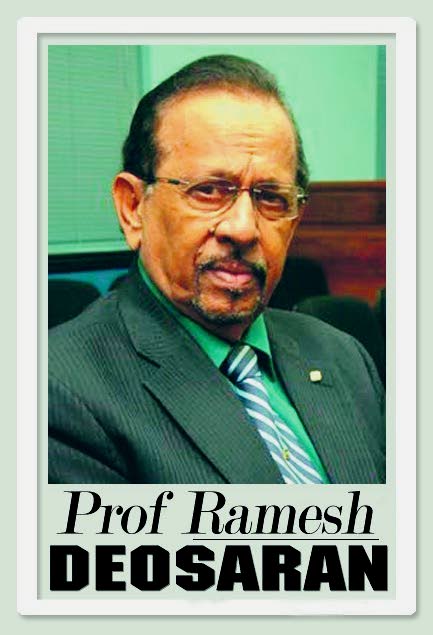Sword mightier than pen?

This column is an edited version of my address to launch the quarterly news magazine, “Keeping it Real on Crime,” on January 31, 2020, UTT Valpark campus.
Any new publication, especially one focussed on crime, must first note the intense media competition in an election year when rumours, propaganda and battle for media space will impose numerous challenges to reporters and editors.
Crime is inevitably political. The constitution allows it, given, for example, the politicised method of appointing a police commissioner, a method agreed upon by both the PNM government and the UNC Opposition. It is a tragedy of our constitutional democracy that our No. 1 problem cannot gain the consensus and accountability required for solution.
As tensions over murder rate and public fear increase towards the next elections, the mainstream media will be refereeing denials, distractions and questions about accountability. Faced with a diminishing middle ground in public space, the perception of right and wrong in public issues will largely depend on whether you are UNC or PNM. Driven by passions and emotions, election stakes are very high. The campaign sword-fights attract crowds. Reason and the intellect, instruments of the pen, would either be shoved out or subdued by mercenary interests, partisan voices and the arbitrary exercise of power. That’s when the sword becomes mightier than the pen. Socrates committed suicide. The books of Sir Thomas Hobbes were burnt at Oxford. Jesus was also an intellectual, a thinker.
In everyday media, as one allegation is made, the response will likely be published the next day as a matter of fairness, often leaving “hard to find” truth in suspension and the public as jury to decide credibility.
As the Privy Council declared, the court is mainly about fairness, and if truth follows, then so be it. Court trials and media reporting are both attempts at reconstructing a past event - social reconstruction.
Hence the Privy Council’s view is not surprising.
The day-to-day challenges of an editor is to sift through bundles of material in ways that require judgement, fairness and accuracy. All this facing unforgiving deadlines. The mass media feeds human curiosity. Having breakfast with a newspaper remains an addictive experience. The reading and listening public wants something new every morning. True, the press sometimes doesn’t get it right, but that should not detract from its overall importance to our democracy. A free press is nightmare to dictators.
A free press is also a protector of the other rights and freedoms in the constitution. A lot of the public hurt and dissatisfaction recently cited by President Paula-Mae Weekes came through the free press, making the press appear as a compelling representative of the powerless. The independent press is the watchdog for the people.
No wonder it is the only private business protected by the constitution, and deservingly so. Just read the editorials (most of them anyway), seeking the wide public interest and holding government to account. However, even when the press calls on government to account, it finds itself threatened by the Sedition Act (Section 3, 4) for bringing “disaffection” upon the government. Disaffection is usually a natural outcome of constructive criticism. It is neither treason nor libel.
With today’s rapid expansion and intrusion of internet media, the society must guard against drifting into a “decivilised realm” where rumours, gossip and falsehoods dangerously share centre space. While internet democracy is commended, we must bear in mind democracy itself has the seeds of its own destruction. We must guard against the sword becoming mightier than the pen.
The great story of the free press, the people’s pen, is that it began as advocate for the poor, voiceless, powerless and oppressed. From over six hundred years, from scribbled letters and pamphlets to machine-printed newspapers and electronic media, the free press worked as the conscience of the community. Even when facing challenges of ownership, advertising threats and political pressures, the free press strives to maintain this mission with courage, helping to ensure than the pen is still mightier than the sword.

Comments
"Sword mightier than pen?"